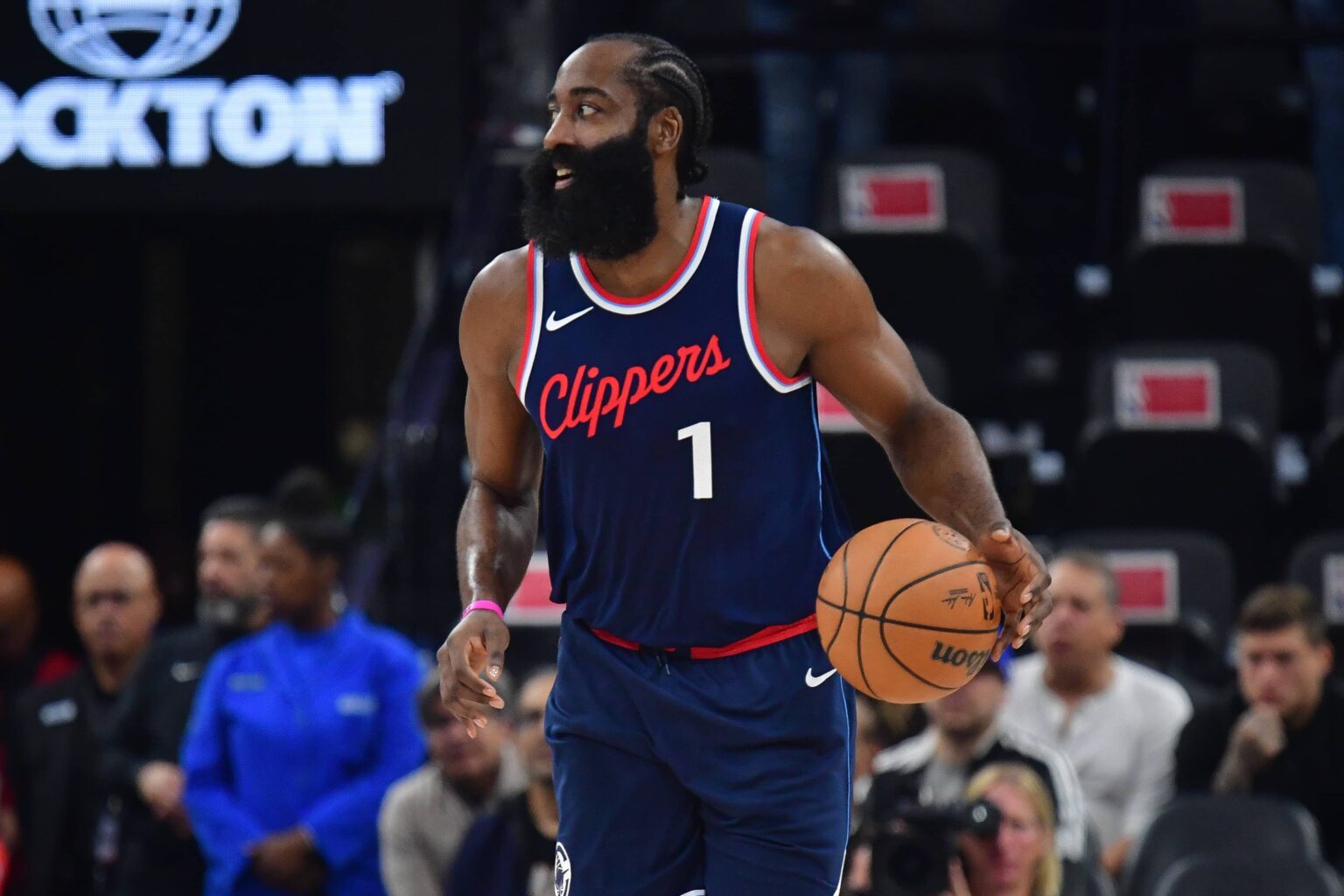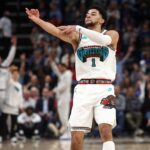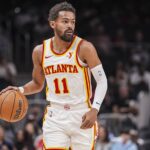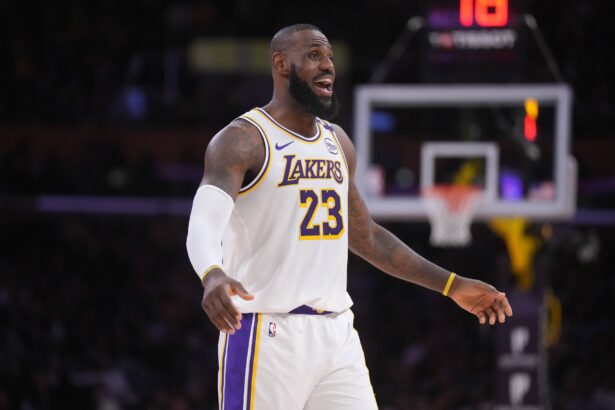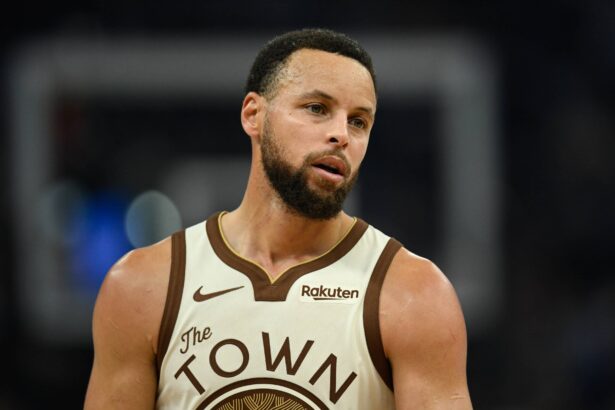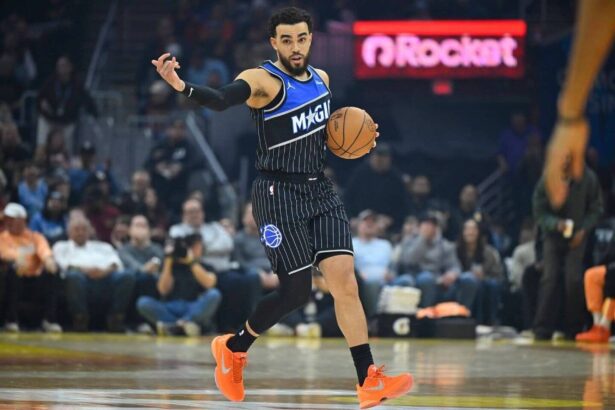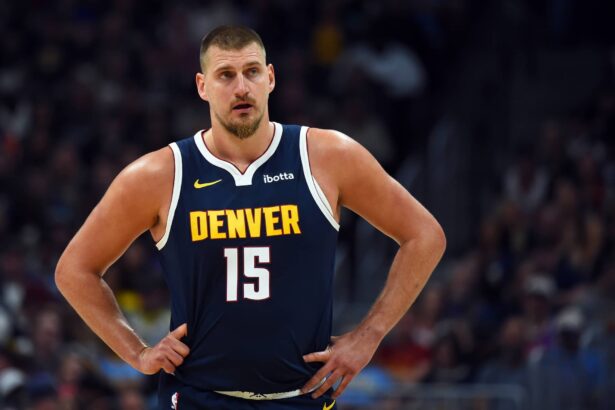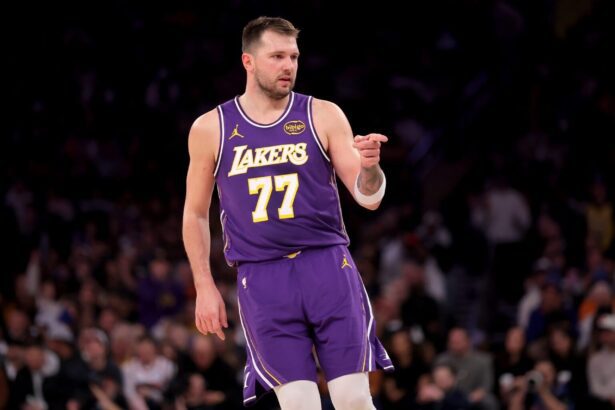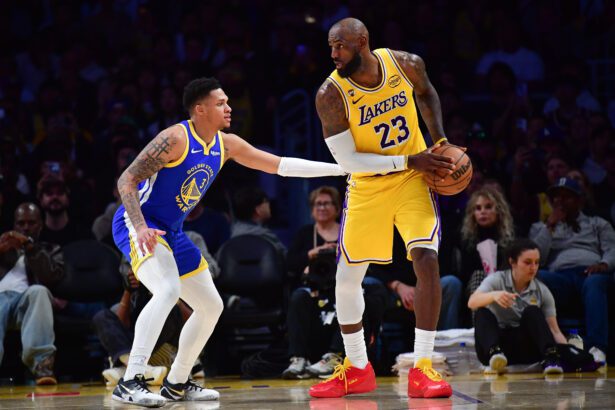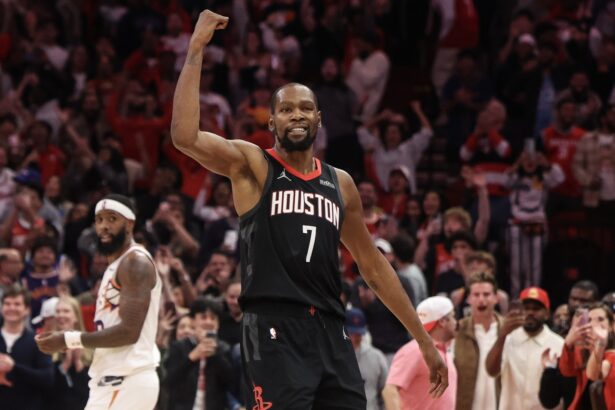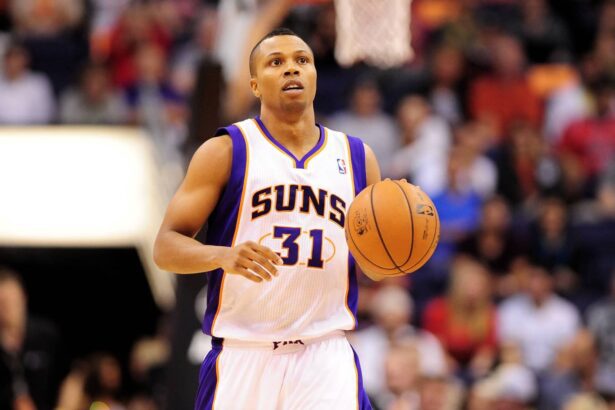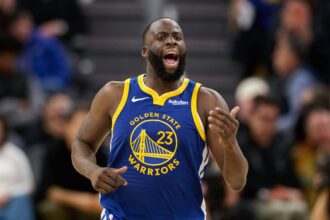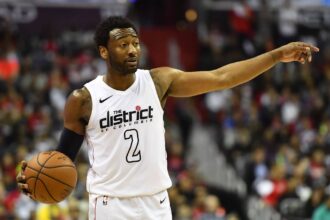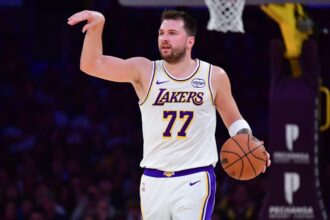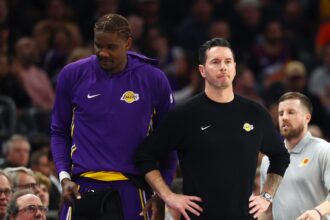The NBA has its fair share of legends known not just for stats but for titles and clutch moments. Yet, some stars, despite impressive numbers, fall short in the win column. Whether it’s due to weak supporting casts, poor timing, or playoff missteps, they’ve struggled to translate their greatness into championships. We’ll explore a few of these exceptional players, looking at how their impressive skills didn’t always drive their teams to victory.
Zach LaVine
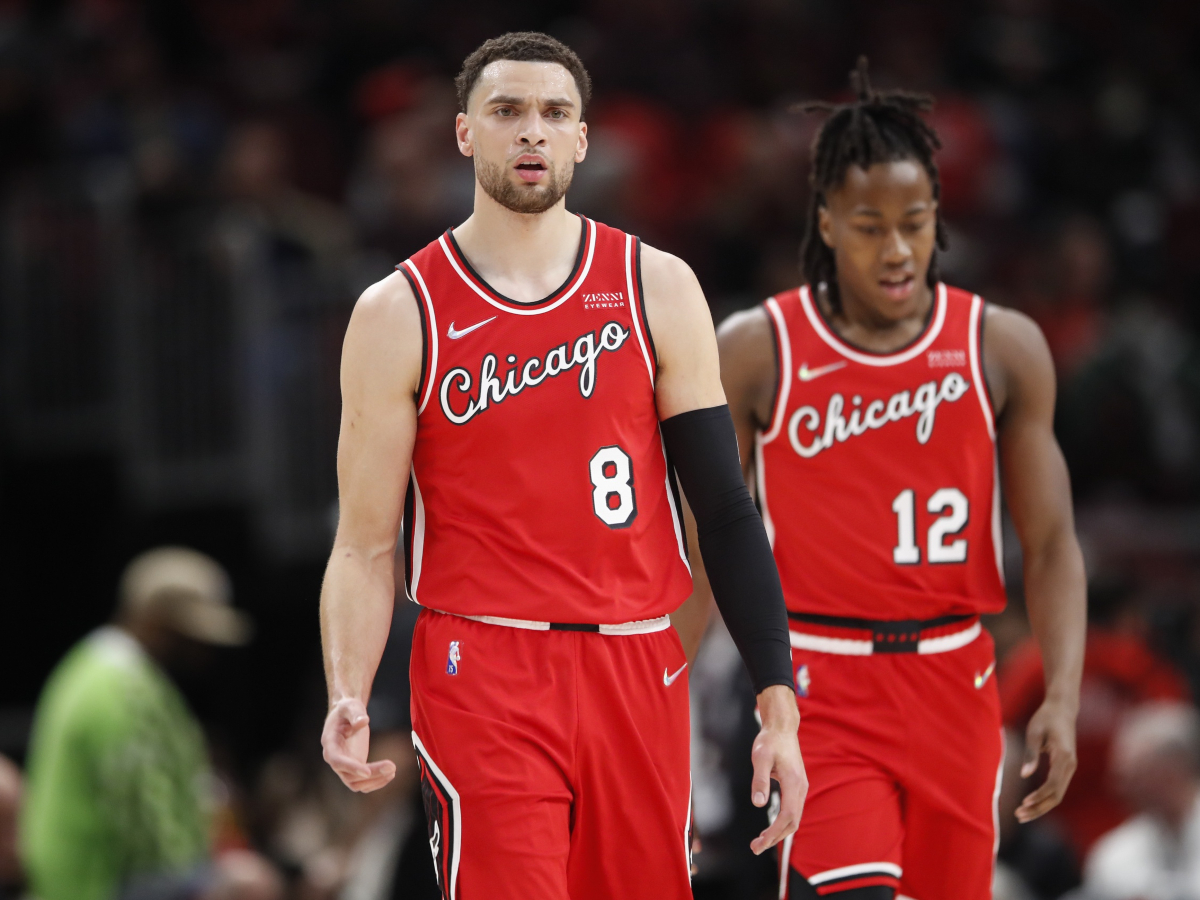
Zach LaVine’s got talent, no question there. He’s explosive, flashy, and can light up the scoreboard like few others. But here’s the catch: his game hasn’t exactly translated to big wins, and that’s been the story for most of his career. Last season, 2023-24, was a rough one due to a nagging foot injury that cut his season down to just 25 games. He had to sit out a long stretch, tried to come back, but the pain wouldn’t go away. Eventually, it led to surgery in February, ending his season early with averages of 19.5 points, 5.2 rebounds, and 3.9 assists. Not terrible, but below what we’ve seen from him at his best.
Now let’s rewind a bit. In 2022-23, he was healthy and putting up big numbers—24.8 points per game on nearly 49% shooting, along with 37.5% from three. For any scorer, those are respectable stats. But the Bulls still stumbled, finishing just under .500, barely making the Play-In Tournament. It’s been a pattern: LaVine scores big, yet the team’s overall impact doesn’t budge much in the win column.
Defensively, LaVine’s game doesn’t hold up as well as his offense. His Defensive Rating, which estimates points allowed per 100 possessions, usually sits on the high side, meaning he’s not exactly locking anyone down. And while his scoring efficiency, with a True Shooting Percentage around 60.2% during peak seasons, is solid, it’s more of a solo act. He’s known for isolation plays rather than ball movement, which doesn’t always gel in clutch situations or tight playoff battles.
With a hot start six into the 2024-25 season (22.7 points, 5.5 rebounds on 49.5% from the field), LaVine’s motivated to prove he’s more than just a highlight reel. He’s healed from his foot surgery, and Bulls fans are hoping he can finally turn that scoring ability into some serious wins. But with his contract, his age creeping up, and his history of injuries, he’s at a crossroads. This season is about more than just putting up numbers—it’s about showing he can lead a team deep into the playoffs. Only time will tell if LaVine can shake his “empty stats” reputation and make a real impact where it matters most.
LaMelo Ball
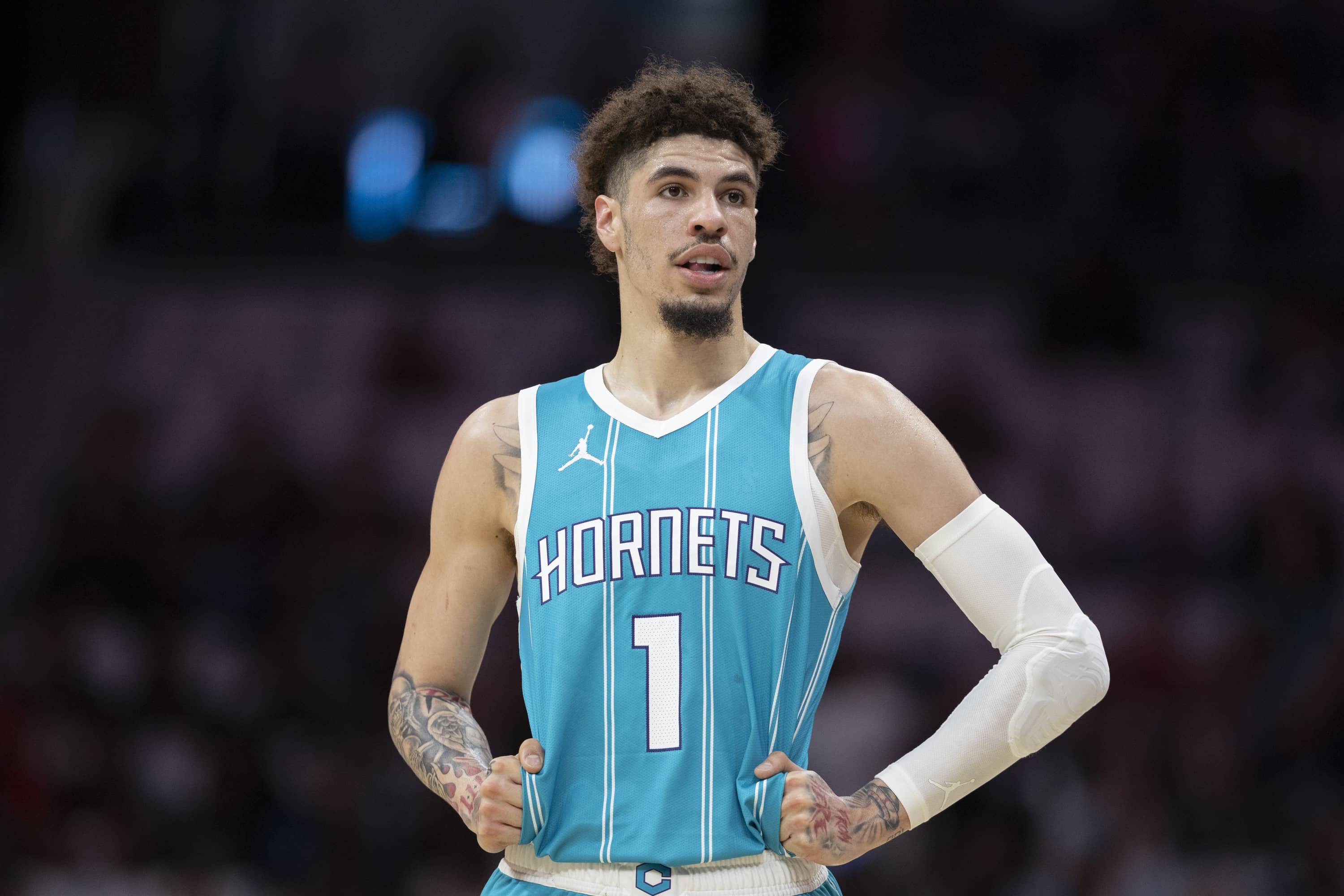
LaMelo Ball’s numbers might look impressive—this season he’s averaging 28.1 points, 6.0 assists, and 4.8 rebounds per game—but the reality is his style doesn’t lead to winning basketball for the Charlotte Hornets. Since entering the league in 2020, Ball has dazzled fans with his flashy passes, deep threes, and court vision, but the Hornets have yet to make a playoff appearance during his tenure.
One big issue is Ball’s defensive impact, or lack thereof. He’s often targeted by opposing offenses, and the Hornets’ defensive rating tends to plummet when he’s on the court. Despite his size and agility, Ball hasn’t shown much commitment on the defensive end, and the numbers reflect that. This season, Charlotte sits at the bottom of the standings again, and defense—or his absence of it—is a major reason why.
On offense, while Ball puts up high point totals, his game can be inefficient. He’s shooting 39% from three, but his midrange and finishing at the rim still need work. Add in five turnovers per game, and you’ve got a player whose high usage doesn’t necessarily equate to effective team play. For a point guard, his assist numbers don’t fully compensate for the lapses in scoring efficiency and ball security.
Another concern is leadership. Ball, despite his popularity and status as the face of the franchise, hasn’t developed a strong leadership presence. Former coaches have hinted at his need to mature into a player who elevates his teammates rather than just looking for highlights. With young players like Brandon Miller and the return of Miles Bridges, the Hornets have some promising talent, but Ball’s lack of evolution in leadership could hold back team chemistry.
Ultimately, LaMelo’s game is exciting but lacks the winning elements needed to push Charlotte forward. If he can’t tighten up his defense, improve efficiency, and reduce turnovers, his career might continue to be more about personal stats than team success. This season is a turning point where Ball needs to prove he can translate his game into wins—something he has yet to accomplish in the NBA.
Trae Young
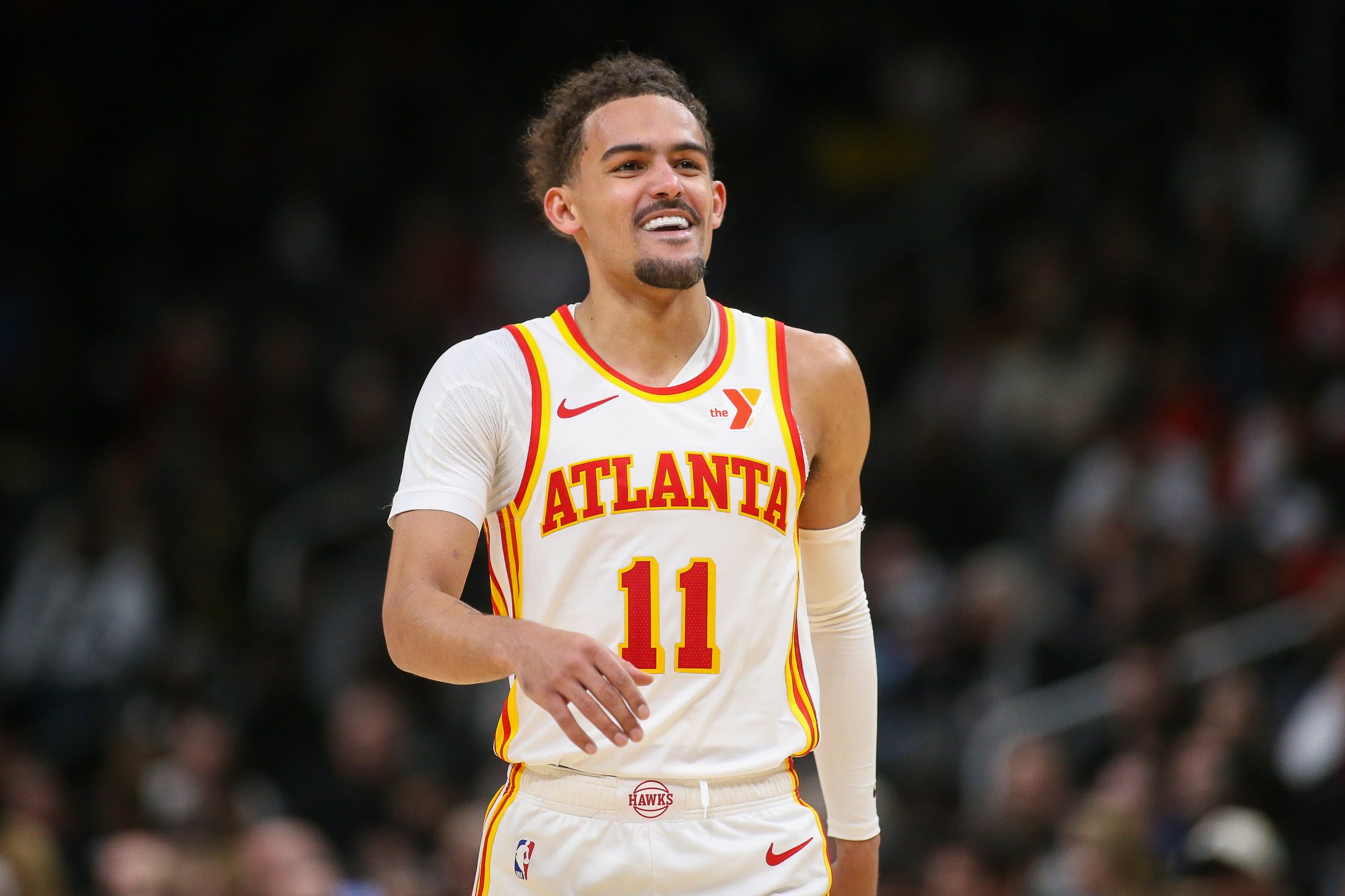
Trae Young has continued to fill up the stat sheet this season, averaging 23.8 points, 10.9 assists, and 4.6 rebounds through his first nine games in 2024-25. However, a closer look reveals familiar issues that have hindered the Atlanta Hawks’ overall success. His shooting percentage is underwhelming at 38.4%, with only 31% accuracy from three, reflecting a scoring style that, while high-volume, often lacks efficiency.
Last season (2023-24), Young had his last pairing with Dejounte Murray in an experiment designed to balance offense and add defensive toughness, which ended in the offseason as Murray got dealt to the Pelicans. Statistically, Young delivered with 25.7 points and 10.8 assists per game, but the fit with Murray didn’t quite produce the intended results. With both players needing the ball, the offense often stagnated. Defensively, the Hawks still struggled, as Young’s limited impact on that end remained a target for opposing teams.
This year, Young’s defensive issues continue to hurt the Hawks, as his lack of size and defensive presence make him a weak spot in Atlanta’s lineup. Despite adding young talent and tweaking their roster, the Hawks’ defensive rating hasn’t improved significantly, as opponents routinely target Young in switches and isolation plays. His on-court performance is a double-edged sword: while he can rack up points and assists, his low shooting efficiency and defensive limitations restrict his impact on team success.
For the Hawks, Young is still the face of the franchise, but his style has yet to translate into consistent winning basketball. Atlanta made it to the play-in tournament last year, only to fall short in a disappointing exit. With the 2024-25 season underway, the challenge remains the same: can Young evolve beyond the stats and lead a team deep into the playoffs? For now, he’s putting up numbers, but without an adjustment in efficiency and defensive engagement, the Hawks’ playoff hopes may continue to stall.
Brandon Ingram
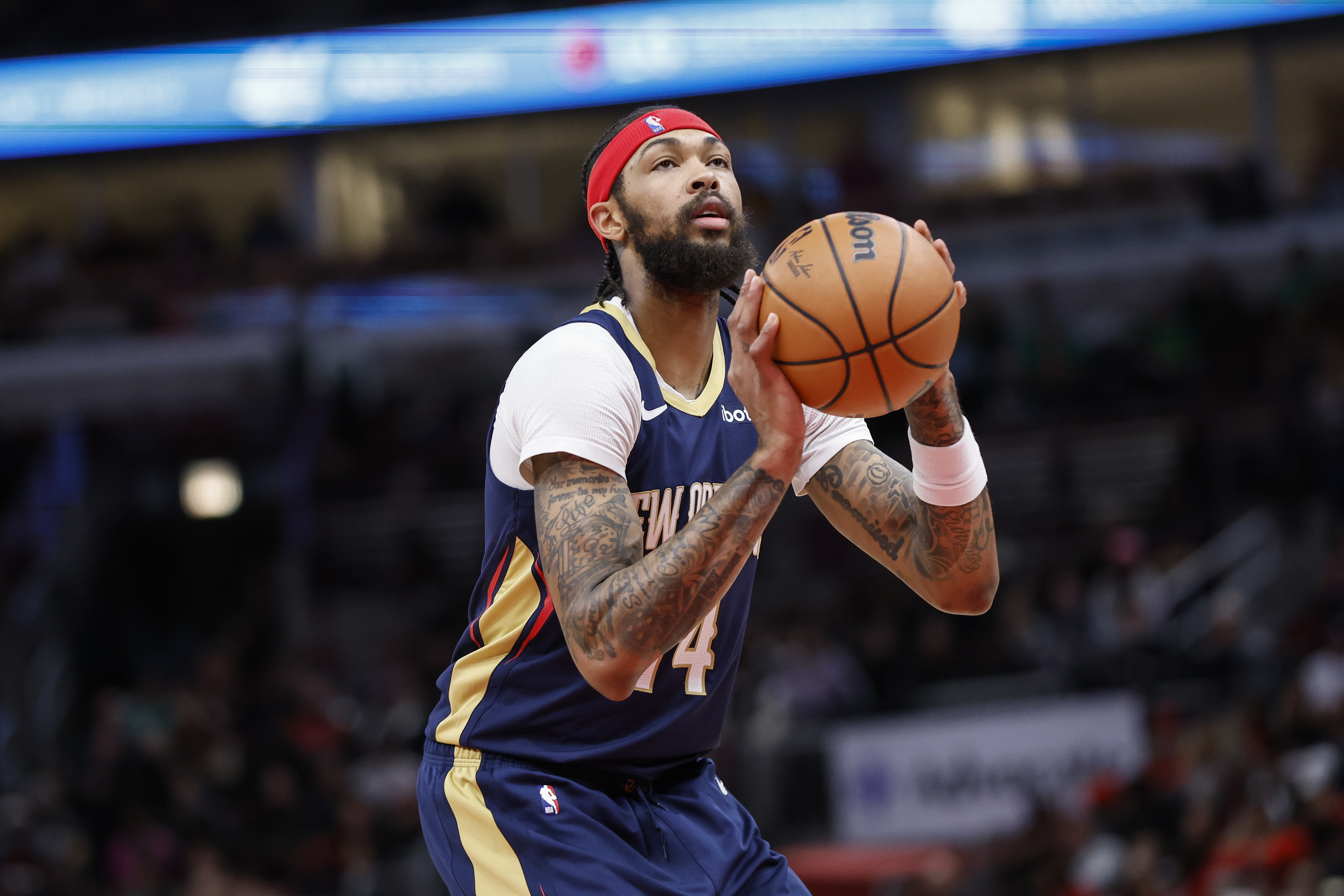
Brandon Ingram is a unique talent in the NBA, known for his smooth scoring and ability to take over games offensively. Yet, when it comes to translating that talent into postseason success, Ingram’s record is rough. In the 2024 playoffs, he put up just 14.3 points per game on a frustrating 34.5% shooting over four games before the Pelicans were eliminated. His struggles from beyond the arc (just 25%) and his inability to impact the game outside of scoring highlight the challenge he faces in being a leader who drives his team to win when it counts most.
Since Ingram joined the Pelicans in 2019, they have not won a single playoff series, an especially stark contrast given the talent on the roster, including Zion Williamson. Ingram has consistently provided solid regular-season numbers, but New Orleans has struggled to turn that into any kind of postseason traction. This trend has raised questions about his ability to shift from a scoring-first mentality to one that might make a stronger impact in high-pressure playoff settings, where efficiency and adaptability are key.
Now, in the 2024-25 season, Ingram is facing a contract year, and his stats so far are respectable: he’s averaging 24.1 points, 6.1 rebounds, and 4.5 assists per game. While his length and shooting should make him an offensive asset, the Pelicans have yet to see that translate to winning basketball. His tendency to rely heavily on isolation play has sometimes stalled the Pelicans’ offense, especially against tougher, defensively focused teams.
Defensively, Ingram’s game also leaves room for improvement. Despite his length, he hasn’t developed into a strong defender, which would be a valuable asset for the Pelicans, especially in tight playoff series. This is crucial in the Western Conference, where teams face some of the league’s best perimeter players. Ingram’s struggles to provide reliable defense further complicate his impact on winning, as the Pelicans often can’t count on him to lock down key players.
With this season being a potential turning point, Ingram has both opportunity and pressure to step up. If he wants a max contract, showing he can elevate his game in ways that drive wins, especially in big moments, is essential. The Pelicans need more than just solid numbers from Ingram—they need leadership, defensive consistency, and adaptability, especially as they aim to break free from a cycle of early playoff exits and disappointment.
Ultimately, Ingram’s journey with the Pelicans has been filled with promise but few results. As New Orleans looks for a deep playoff run, the spotlight will be on whether Ingram can finally bring his regular-season production into the postseason, moving beyond empty stats to a role that impacts winning. For both Ingram and the Pelicans, this season could be make-or-break.
Karl-Anthony Towns
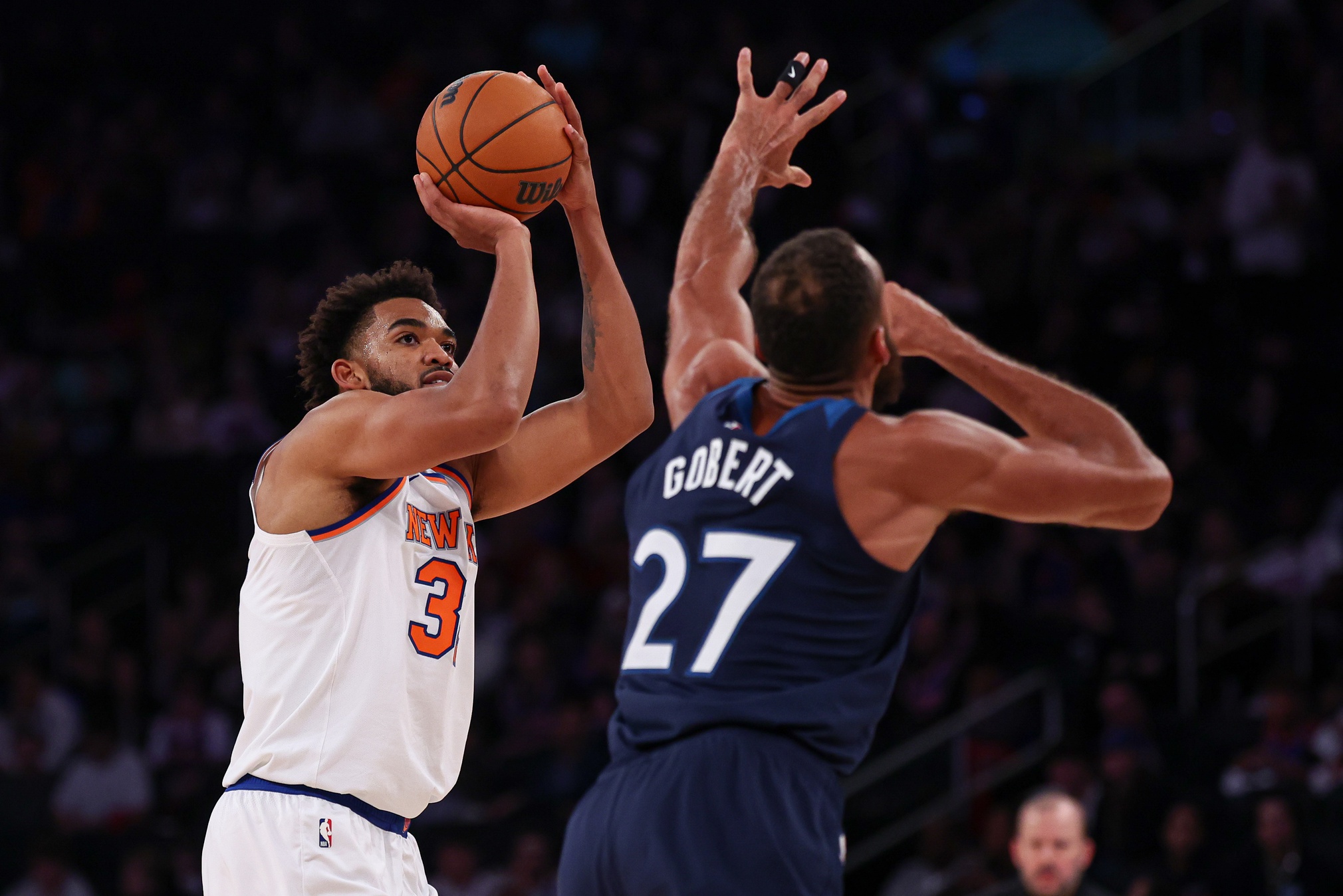
Karl-Anthony Towns’ career has been a bit of a rollercoaster. The guy’s got skills—no doubt about it—but the Timberwolves only really made noise in the playoffs twice during his time there, and even then, it wasn’t because he was the main guy. Back in 2018, Minnesota finally got to the playoffs, but it was Jimmy Butler, not KAT, who carried the team. Butler took over, leading the Wolves with his grit and defense, while Towns often looked more like a sidekick. That dynamic didn’t last long; Butler left, frustrated with the team’s lack of urgency, and KAT was back as the “face of the franchise”—at least on paper.
Fast forward a few years, and the spotlight started shifting again. In came Anthony Edwards, a young, explosive scorer who quickly became the fan favorite and, honestly, the Wolves’ real leader on the court. By the time they made the playoffs in 2022, it was Edwards who was taking big shots and leading the charge, while Towns found himself playing more of a supporting role. Edwards’ fearless style and clutch play made it pretty clear that he was now the future of the franchise. For KAT, who’d been the franchise centerpiece for years, it was a reality check—he was no longer the top guy in Minnesota.
Then came this past offseason, and things took a major turn. The Wolves finally pulled the trigger, trading Towns to the New York Knicks in a blockbuster deal. Now, KAT is on a Knicks squad that’s stacked, featuring Jalen Brunson, Mikal Bridges, and OG Anunoby. It’s as close to a “superteam” as the Knicks have had in a while, and they’re serious contenders in the East. This team setup is something Towns has never really experienced, and the stakes are high. In New York, he’s expected not just to put up numbers but to play a big role on both ends of the floor.
For Towns, this season is a huge opportunity to redefine his career. He’s no longer on a small-market team fighting to make the playoffs; he’s on a team expected to go deep. Whether he can adapt to the Knicks’ style and prove he’s more than just a stat-sheet stuffer is the big question. This year could either be KAT’s redemption arc or another chapter in a career that’s had plenty of ups and downs.
Bradley Beal
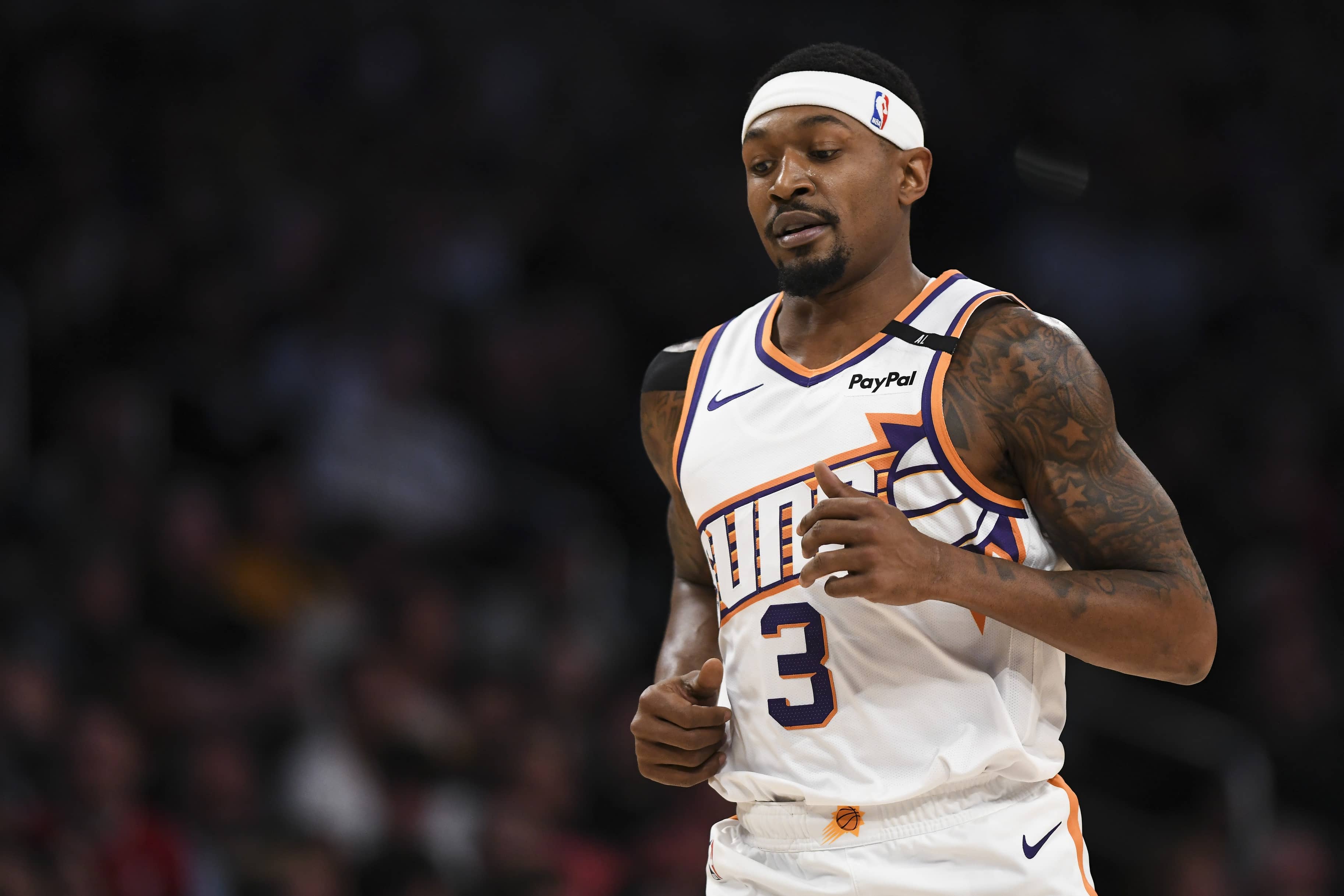
Bradley Beal’s time with the Washington Wizards was defined by big scoring nights, loyalty to the franchise, and ultimately, limited playoff success. In the 2020-21 season, he came incredibly close to winning the scoring title, averaging a career-high 31.3 points per game on 48.5% shooting, trailing only Stephen Curry’s 32.0 points per game. Beal was relentless that season, even dropping a career-high 60 points in a game. But despite his scoring prowess, the Wizards scraped into the playoffs as the 8th seed and were quickly knocked out by the top-seeded Philadelphia 76ers in the first round, losing the series 4-1. Beal’s individual brilliance was on display, but it wasn’t enough to lift Washington past the opening round.
During his tenure in D.C., Beal carried a massive scoring load but lacked consistent support. As the clear number one option, he put up impressive numbers across multiple seasons, even averaging over 30 points per game in 2019-20 and 2020-21. However, the Wizards’ roster struggled to compete in a tough Eastern Conference, with Beal’s high usage and scoring often not translating to team success. Washington tried building around him with players like Russell Westbrook and, later, Kristaps Porzingis, but they couldn’t escape the lower playoff seeds or make a deep run.
Fast forward to 2023, and Beal’s career took a major turn as he joined the Phoenix Suns, teaming up with superstars Kevin Durant and Devin Booker. The trade was seen as a chance for Beal to finally contend for a championship without having to carry the entire offensive load. Expectations were sky-high; Phoenix had put together a “superteam” on paper, and many considered them favorites to dominate the Western Conference. Beal was slated to take on more of a point guard role, facilitating alongside Booker and Durant and potentially upping his assist numbers with less focus on pure scoring.
Yet, the Suns’ postseason in 2024 ended in disappointment. Despite all their firepower, they were swept 4-0 in the first round by the Minnesota Timberwolves, a stunning exit that left fans and analysts questioning the chemistry and balance of the team. Beal averaged just 16.5 points, 2.8 rebounds, and 4.5 assists per game in the series, far below the impact expected from a player of his caliber. His efficiency suffered as he adjusted to his new role, and the Suns’ supposed “superteam” fell well short of expectations.
Now, in his second season with the Suns, Beal faces the challenge of finding his fit within a star-studded lineup while also dealing with ongoing injury concerns. For Phoenix, the hope is that Beal can adapt his game to contribute more effectively in the postseason, bringing his scoring and playmaking when it matters most. After years of putting up huge numbers in Washington without much playoff success, Beal’s legacy may now hinge on his ability to make a meaningful impact in a championship-contending environment, as the Suns have started the season hot, with a current 7-1 record and 2nd in the West.
Michael Porter Jr.
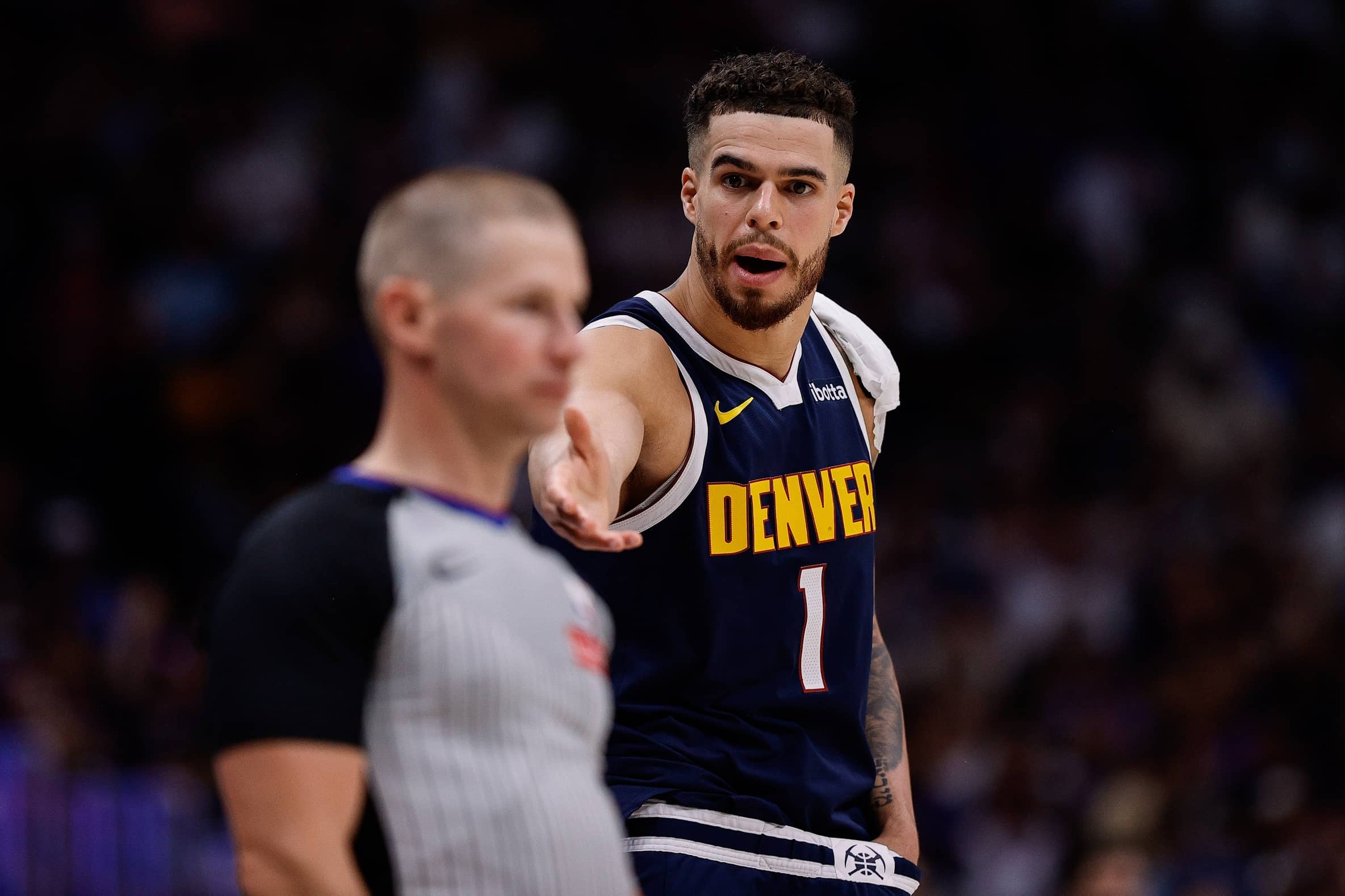
Michael Porter Jr. has always been a unique talent with his shooting ability and size, but translating that into consistent “winning basketball” hasn’t been straightforward. Porter is an elite catch-and-shoot player, shooting over 40% from three for his career, which makes him a great complement to Nikola Jokic’s playmaking. However, a big chunk of his scoring—over 80% of his made field goals—is assisted, meaning he relies heavily on teammates to create shots for him. While this works well in Denver’s system, it highlights that Porter isn’t a self-sufficient shot creator, which limits his ability to carry offensive responsibility when needed.
Defensively, Porter has been inconsistent. While he has size and athleticism, his defensive IQ and effort have often come under scrutiny. He’s shown some improvement, notably during the Nuggets’ 2023 championship run, where he occasionally stepped up defensively. Still, his defense is always a point of vulnerability for Denver. Porter’s issues with lateral movement and awareness mean opponents can exploit him, especially in high-stakes playoff scenarios. With occasional good defensive moments, his defense has not reached the level expected of a max-contract player.
Porter’s fit within the Nuggets is another interesting layer. He plays alongside Jokic and Jamal Murray, who dominate the ball, so Porter’s role is often limited to spot-up shooting and cutting to the basket. In a way, this reduces his overall impact on games, as he’s rarely in a position to make plays independently. Even though he’s a reliable scorer, his limited versatility on offense—he doesn’t create shots or facilitate for others—means his contributions are often one-dimensional. His performance is tied closely to the flow created by Denver’s true playmakers, and if that flow is disrupted, Porter’s effectiveness wanes.
In terms of winning impact, Porter’s scoring alone doesn’t consistently translate to victories when he’s not paired with elite creators. While his shooting helped the Nuggets secure the 2023 championship, Denver’s success largely revolved around Jokic’s MVP-caliber performances and Murray’s shot-making. Porter played a supporting role, hitting crucial shots but not impacting other aspects of the game as much as other top contributors on championship teams.
This season, Porter has struggled with efficiency, starting slowly with career-low shooting percentages. With his max contract kicking in, expectations are high for him to contribute more reliably and impactfully, especially on nights when Jokic or Murray need extra support. If Porter can’t improve his defense and diversify his offensive game, the Nuggets may find themselves questioning the return on their investment, even with his role in last year’s title win.
Jordan Poole
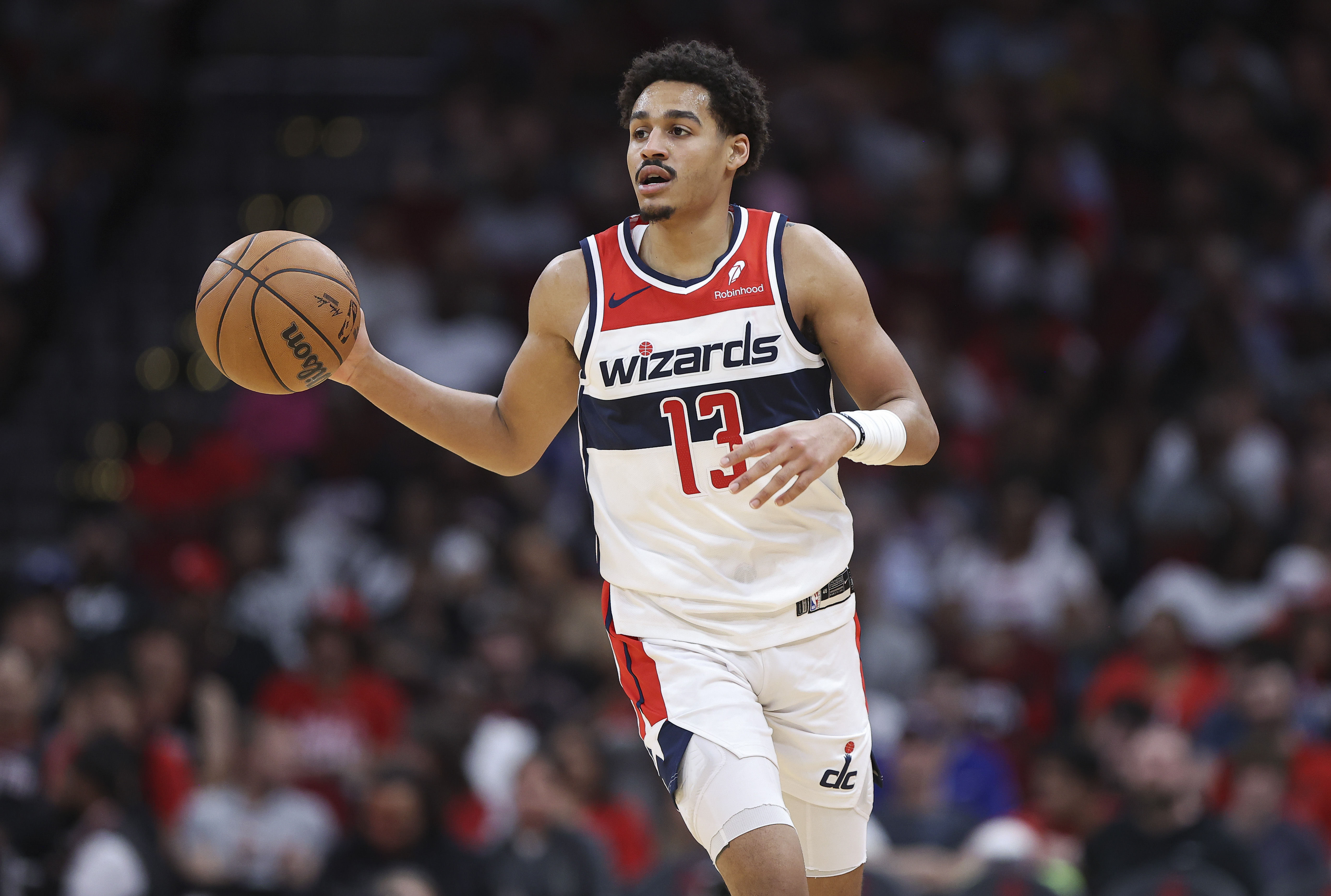
Jordan Poole’s move to the Washington Wizards has been a wild ride. Last season (2023-24) was his first as the main scoring option after leaving the Golden State Warriors, and while he had flashes of brilliance, it was far from smooth. He averaged 17.4 points per game, which sounds solid, but his shooting was rough—only 41.3% from the field and 32.6% from deep. Those are the kind of stats that show just how tough it is to go from being a spark off the bench to carrying a team. The Wizards struggled all season and ended up with the No.2 overall pick in the Draft, leaving fans questioning whether Poole could be the cornerstone player Washington hoped for.
This season, Poole’s second with the Wizards, he’s upped his game. He’s now putting up 22.5 points per game and shooting a much more respectable 44.9% from the field and 45.3% from three. It’s clear he’s more comfortable in his role as the primary scorer, and he’s even added more assists, averaging 5.0 per game. But even with his numbers looking better on paper, the Wizards still have a rough 2-4 record. So, while Poole is scoring, the impact on the win column hasn’t quite followed, which is always the challenge when you’re leading a young, rebuilding team.
Poole’s style of play is part of the story here. He’s a volume shooter, which means he needs a lot of shots to get his points. On his best nights, he can light it up with deep threes and wild drives to the basket, but when his shot isn’t falling, he struggles to contribute in other ways. Last season, he had a lot of those cold-shooting games, which hurt the team because he didn’t have other go-to options to balance things out. His defense also remains a question mark, as he’s often outmatched by opposing guards, which can be tough on a young team that’s already trying to find its footing.
With a big contract and a central role in Washington, Poole’s development this season is huge for both him and the Wizards. They’re hoping he can go beyond just being a scorer to becoming a more versatile player who can help lead the team. For now, he’s putting up numbers, but translating that into wins is the next big step.
Nikola Vucevic
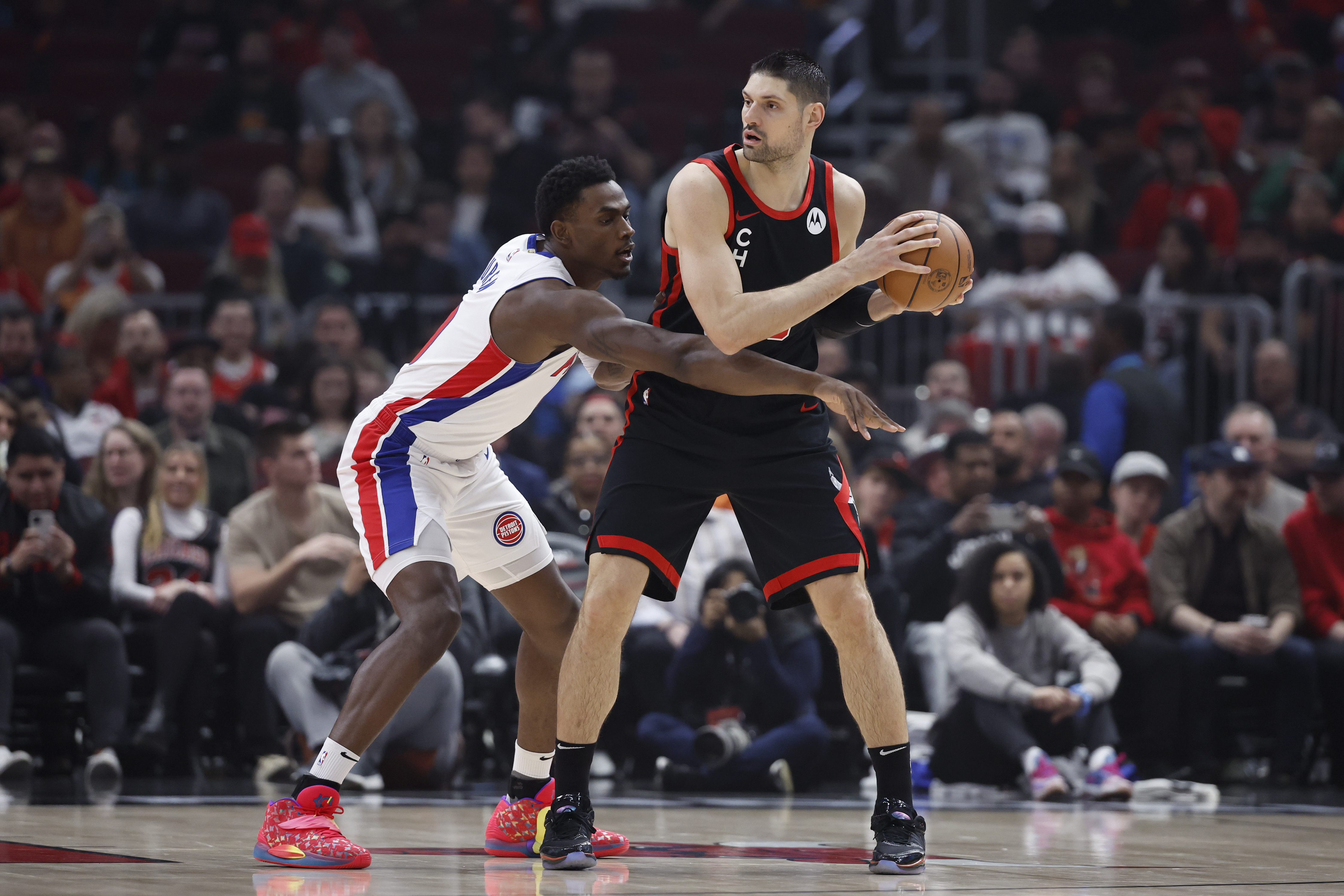
Nikola Vucevic spent almost a decade with the Orlando Magic, where he built a reputation as a consistent scorer and double-double machine. He became an All-Star twice during his time in Orlando, but the team had limited success. The Magic only made the playoffs twice, both times as lower seeds, and both runs ended quickly in the first round. Vucevic put up impressive numbers, but his impact was never quite enough to push the Magic into deeper playoff contention.
In 2021, the Magic traded Vucevic to the Chicago Bulls, who wanted an experienced veteran to pair with Zach LaVine and later DeMar DeRozan. The idea was that Vucevic’s presence would add stability and help Chicago make a serious playoff push. He has continued to average 18.2 points and 10.9 rebounds per game in his time with the Bulls, bringing solid production. Still, Chicago has only made one playoff appearance with this core, falling in the first round as an 8th seed. The team has struggled to make a real impact in the Eastern Conference.
One of the challenges for Vucevic in Chicago has been his fit within the lineup. Offensively, he excels when playing inside-out with a team that sets him up, as he’s not a strong shot creator on his own. Defensively, he can be a weak spot in a league that now features athletic big men with strong two-way abilities. With LaVine and DeRozan also focusing heavily on offense, the Bulls’ lineup often lacked the defensive balance needed to contend against top teams.
In the 2024-25 season, Vucevic remains a reliable contributor for a Bulls team that lost DeRozan and Caruso, delivering solid performances and a steady inside presence. But as his career has shown, translating personal production into meaningful wins remains a challenge that he and the Bulls have yet to fully overcome.
D’Angelo Russell
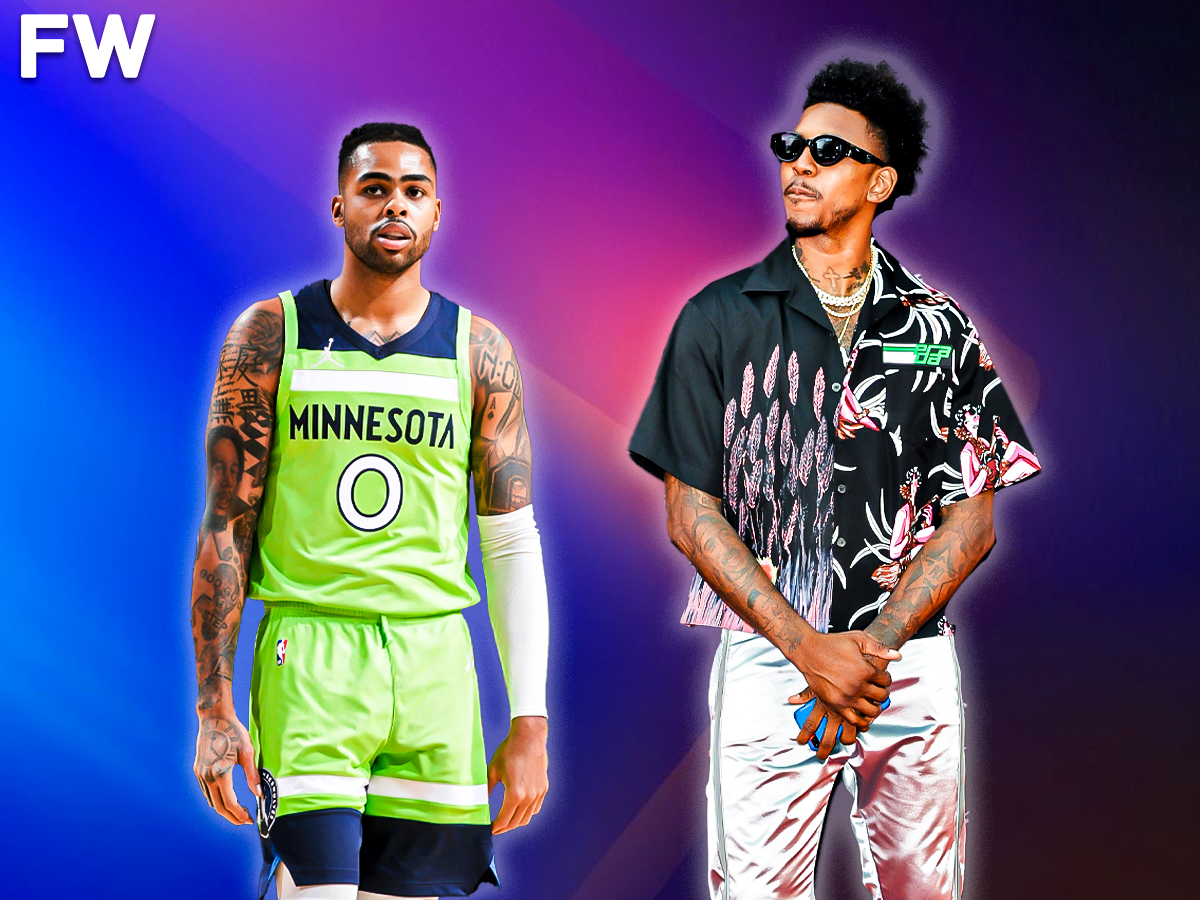
D’Angelo Russell’s 2023-24 season with the Lakers was marked by solid regular-season numbers but limited impact when it came to high-stakes games. He averaged 18.0 points, 6.3 assists, and 3.1 rebounds per game in the regular season, shooting 45.6% from the field and an impressive 41.5% from three. His shooting stats were efficient, and his playmaking was strong on paper, but his game struggled to translate into “winning basketball” for the Lakers.
In the 2024 playoffs, his performance was inconsistent, especially against elite defenses. Over five games, Russell averaged 14.2 points, 4.2 assists, and 2.8 rebounds, while his efficiency dropped to just 38.4% from the field and 31.8% from beyond the arc. In the series against the Denver Nuggets, his inconsistency was evident; he scored 0 points in Game 3, followed by a strong 23-point performance in Game 4, only to shoot 30% and 11.1% from three in Game 5. His ups and downs during this series raised questions about his ability to perform under playoff pressure.
Russell’s reliance on jump shooting without strong defensive contributions has often been an issue. His offensive style is heavily reliant on perimeter shots rather than driving to the basket or drawing fouls, which can leave him with limited options when his shot isn’t falling. Defensively, he’s known for being targeted by opposing guards, and his lack of impact on that end of the floor put additional pressure on the Lakers’ other defenders. This pattern makes him easier to exploit in playoff settings, where teams are quick to identify and attack weaknesses.
Russell’s game shows why his stats don’t always lead to wins. He’s skilled at scoring and playmaking, but his efficiency tends to dip in the playoffs, and his limited versatility on defense and shot creation have kept him from becoming a high-impact player in critical moments. As the Lakers continue to build around their core, Russell’s ability to adapt his game to playoff-level intensity remains a question, particularly if they aim to go deep into the postseason.
James Harden
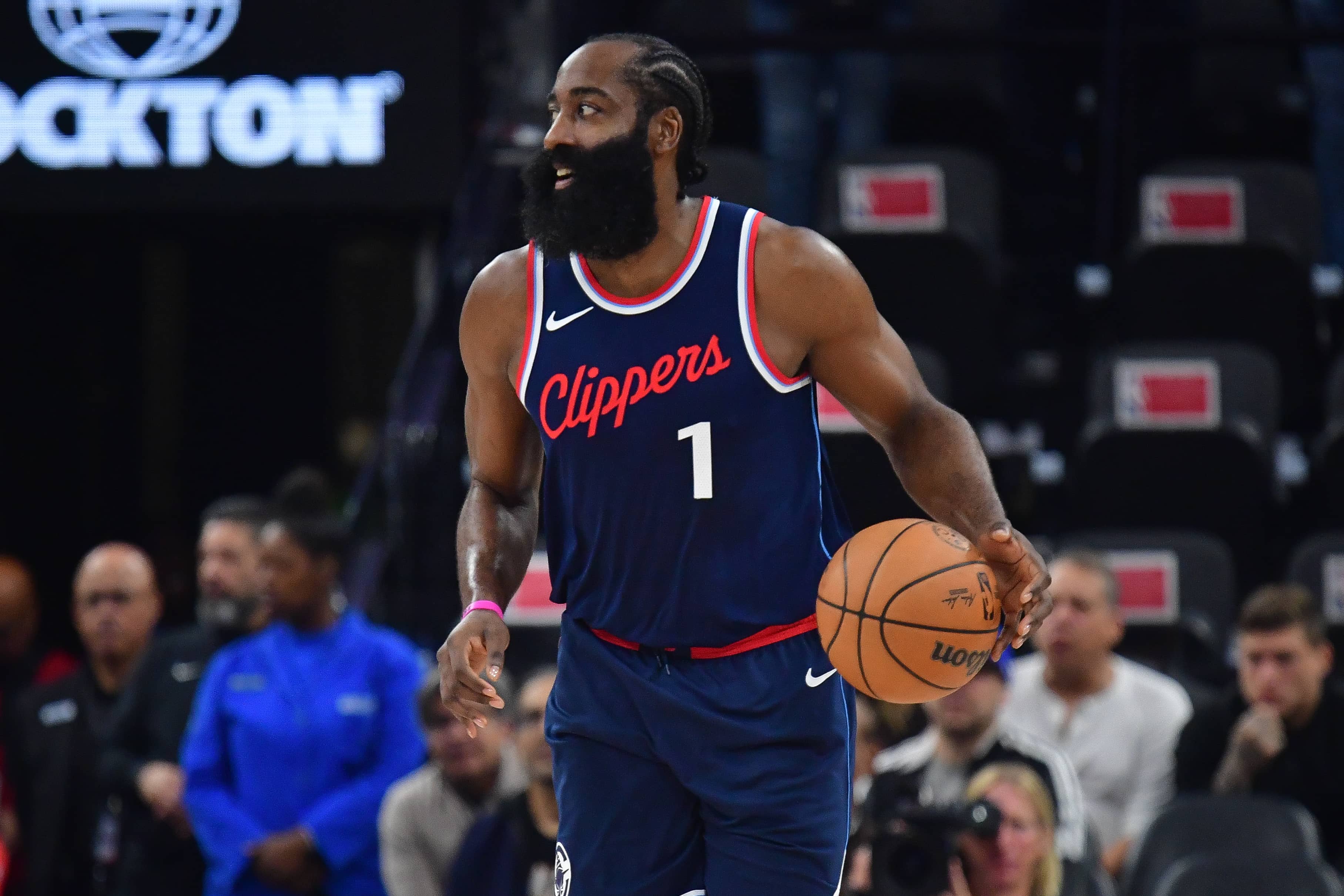
James Harden’s reputation as a regular-season superstar has been established for years, but his playoff performances have often fallen short, preventing him from becoming the “winning player” teams hope for. In his prime years with the Houston Rockets, Harden was an offensive juggernaut, regularly averaging over 30 points per game and even winning an MVP in 2018. Yet, his playoff runs with Houston repeatedly ended in disappointment, highlighted by shooting slumps and key elimination games where he struggled to deliver. Against teams like the Warriors, Harden’s Rockets consistently came up short, and he was criticized for poor efficiency and high turnover rates in pivotal moments.
In 2023, Harden and the Philadelphia 76ers once again put up strong numbers, as he averaged 20.3 points, 8.3 assists, and 6.2 rebounds in the playoffs. Yet, Philadelphia’s run ended in the Eastern Conference Semifinals with a Game 7 loss to the Celtics. Harden’s inconsistent play haunted him again, as he had some high-scoring games but also a few where he failed to reach double digits, leaving the Sixers short when they needed him most. His streaky performances reinforced the narrative that while Harden is skilled at producing in the regular season, he struggles with consistency when defenses tighten up in the playoffs.
In 2024, after a move to the Los Angeles Clippers at the season’s start, Harden entered the playoffs with high hopes alongside Kawhi Leonard and Paul George. He averaged 21.2 points, 8.0 assists, and 4.5 rebounds over six games, shooting a respectable 44.9% from the field but only 38.3% from three. Amid some solid stat lines, the Clippers were eliminated in the first round by the Dallas Mavericks. In this series, Harden had both highs and lows; he scored 33 points on 70.6% shooting in one game but then shot just 16.7% in another. His unpredictable performances and defensive lapses proved costly in a close series where the Clippers needed stability.
Harden’s journey illustrates the gap between regular-season dominance and playoff reliability. Known for his isolation scoring and playmaking, he thrives in the regular season when the pace and defensive intensity are more forgiving. In the playoffs, still, defenses zero in on him, exposing weaknesses like his tendency for contested shots and moments of low engagement on defense. Each season, Harden shows flashes of brilliance, but without the consistency needed to lead a team deep into the playoffs, he remains a player whose contributions shine brightest outside the most critical postseason moments.

